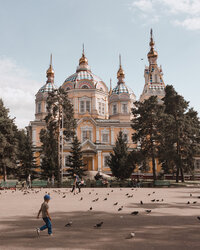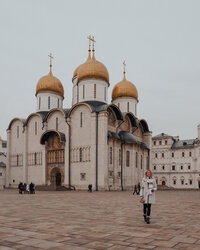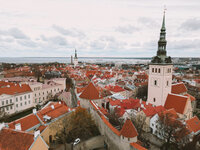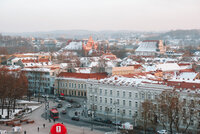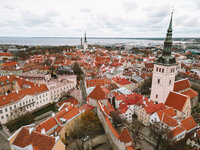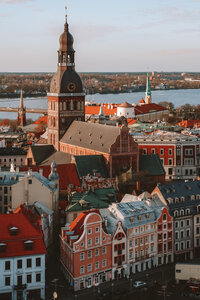

How to Give a Toast in Russian and Other Celebratory Wishes
Knowing how to give a toast in Russian is essential when traveling the former Soviet Union or having dinner with a native speaker. I’d consider Western culture a bit more lax when it comes to toasts before meals because ~ boy, howdy ~ do Russian speakers treasure a good toast. Depending on your level of Russian, most Russian speakers will just be appreciative that you’ve put in the time and effort to partake in an important tradition of theirs. So whether you just want to cover your bases or you’re looking to impress, check out the different ways you can give a toast in Russian!
I learned just how important it is to have a toast up your sleeve the first time I ever visited a Russian-speaking country. My host family took me to a two-year-old’s (rather extravagant) birthday party, whereupon I learned that every guest there – easily 100+ people – was to give a toast to the birthday girl and her parents. Mind you, I’d never met this family before, I was just a +1. Nevertheless, an hour went by of guests standing up, one by one, giving the most heartfelt toasts to the family of honor. By the time it came around to me and my friends who had also been invited, we nervously recanted a generic toast about happiness and health we had learned minutes before. The guests were . . . amused. I vowed from that day that I would have my sh*t together for any future occasion that required a speech. Hence, this article – I hope it helps you get your sh*t together, too!
Last updated: 6/21/22
Давайте начнём!
Contents



Holiday and Celebratory Wishes in Russian
While toasts don’t necessarily require a special occasion, they often accompany one. So before diving into toasts, I thought I’d get us acquainted with common celebration wishes. Regardless of the special occasion, Russian speakers usually begin their wishes with “Поздравляю” or “I congratulate” and then the preposition “с” + the instrumental case. So let’s look at some holidays and special occasions to congratulate people with.
Поздравля́ю тебя́/вас . . .
- с днём рожде́ния! – Happy birthday!
- с оконча́нием шко́лы! – Congrats on graduating high school!
- с оконча́нием университе́та! Congrats on graduating university!
- с но́вой рабо́той! – Congrats on your new job!
- с повыше́нием! – Congrats on your promotion!
- с вы́ходом на пе́нсию! – Congrats on retirement!
- с обруче́нием! – Congrats on your engagement!
- со сва́дьбой! / с днём ва́шей сва́дьбы! – Congrats on the wedding! / on your wedding day!
- с годовщи́ной сва́дьбы! – Congrats on your anniversary!
- с рожде́нием ребёнка/сы́на/до́чери! – Congrats on the birth of your kid/son/daughter!
- с Днём ма́тери! – Happy mother’s day!
- с Междунаро́дным же́нским днём! / с 8 (восьмо́м) ма́рта! – Happy International women’s day! / Happy March 8th!
- С Днём влюблённых! – Happy Valentine’s Day!
- с Рождество́м! – Merry Christmas!
- с (наступа́ющим) Но́вым го́дом! – Happy (upcoming) New Year!
Now that we’ve established what we’re celebrating, . . . let’s toast!





Giving a Toast in Russian
First things first – the toast you often hear in movies “na zdarovje” is not how you say “cheers” in Russian. While it does translate to “to health,” it is not used to give a toast – It is used in two situations: 1) by a waiter delivering your food/drinks or 2) to thank said waiter.
Don’t fret just yet, though – the way to make a simple toast in Russian can be just as short and sweet. We just need to change the preposition to “za.” Let’s look below.
1. Toasts with “за”
Here is where you state what you’re drinking to. Just like in English, you can simply say “to us!” or “to the bride and groom!” or you can add statements before such as “Let’s drink to us!” or “Raise your glass to the bride and groom!” So, if you want to get ~ fancy ~ you can use the following phrases before your toast: “Я хочу́ подня́ть свой бока́л,” “Дава́йте поднинем бока́лы,” “Предлага́ю вы́пить,”or “Дава́йте вы́пьем.” Next, pick what you’d like to drink to using the preposition “за + что/кого́” in the accusative case. Here are some examples:
За + что? – To what?
- за твоё/ва́ше здоро́вье – to your health
- за (на́шу/настоя́щую) дру́жбу – to (our/real) friendship
- за встре́чу – to our meeting
- за любо́вь – to love
- за успе́х (+чего́-либо) – to the success (+of . . .)
- за сча́стье – to happiness
- за уда́чу – to (your) luck
За + кого́? – To whom?
- за тебя́/вас – to you
- за нас – to us
- за на́шу хозя́йку – to our host
- за имени́нника (м.) / имени́нницу (ж.) – to the birthday boy / girl
- за новобра́чных – to the newlyweds
- за женика и неве́сту – to the groom and bride
За то, что́бы . . . – So that . . .
- За то, что́бы у нас всегда́ был по́вод для празника! – So that we always have a reason for celebrating!
- За то, что́бы всё бы́ло хорошо́! – So that everything is great!
- За то, что́бы все твои́ мечты́ сбы́лись! – So that all your dreams come true!
- За то, что́бы не забыва́ть друзе́й! – So that we don’t forget friends!
- За то, что́бы на́ши жела́ния совпада́ли с на́шими возмо́жностями! – So that our wishes coincide with our opportunities!
- За то, что́бы мечты́ исполня́лись не то́лько в день рожде́ния! – So that (your) dreams come true not only on your birthday!
- За то, что́бы всё плохо́е оста́лось в ста́ром го́ду, а Но́вый год принёс то́лько са́мое лу́чшее! – So that everything bad stays in the old year, and the New Year brings only the very best!
*Note: As a rule in Russian grammar, be sure that any verb you add after чтобы is in the past tense!
2. Toasts with “желать”
“Желать” translates to “to wish.” Like above, the first variant тебе is used for one singular and informal friend, and вам is used for either one formal friend or several friends. Next, add what you’d like to wish for them in the genitive case OR just the infinitive of the applicable verb OR ,чтобы + a clause with the verb in the past tense. Check out the examples below.
Жела́ю тебе́/вам + чего́-либо – I wish you (inf./f.) + what
- Жела́ю тебе́ благополу́чия. – I wish you prosperity.
- Жела́ю тебе́ са́мого лу́чшего. – I wish you the very best.
- Жела́ю тебе́ всего́ того́, что ты себе́ сам(а) жела́ешь. – I wish you everything you wish for yourself.
- Жела́ю тебе́ (безграни́чного) сча́стья и (кре́пкого) здоро́вья. – I wish you (unlimited) happiness and (“strong”) health.
- Жела́ю тебе́ успе́хов в дела́х. – I wish you success in your work
- Жела́ю тебе́ такого же особенного дня (Рождения), как и ты. – I wish you for you that your (birth) day is as special as you are.
- Жела́ю тебе́ хоро́шего настрое́ния. – I wish you a good mood.
- Жела́ю тебе́ исполне́ния всех жела́ний. – I wish for you that all your wishes comes true.
- Жела́ю тебе́ мно́го де́нег. – I wish you a lot of money.
*Note: Native speakers often omit the first part and just say what they wish. Ex. “Всего́ наилу́чшего в день деся́той годовщи́ны!”
Жела́ю тебе́/вам + инф. – I wish you + infinitive
- Жела́ю тебе́ никогда не переставать радоваться всем маленьким моментам в твоей жизни. – I wish for you to never stop enjoying all the small moments in your life.
- Жела́ю тебе́ всегда́ улыба́ться несмотря́ ни на что. – I wish for you to always smile no matter what.
- Жела́ю тебе́ отлично провести время сегодня. – I wish for you to have a great time tonight.
- Жела́ю тебе́ чу́вствовать себя́ всегда́ на восемна́дцать. – I wish for you to always feel like you’re 18.
Жела́ю, что́бы . . . – I wish that . . .
- Жела́ю, что́бы неуда́чи обходи́ли тебя́ стороно́й. – I wish that bad luck avoids you.
- Жела́ю, что́бы у тебя́ всегда́ было лёгкое се́рдце и тяжёлые карма́ны. – I wish that you always have a light heart and heavy pockets.
- Жела́ю, что́бы у тебя́ была́ ку́ча де́нег и мо́ре любви́. – I wish that you have a bunch of money and a sea of love.
3. Toasts with “пусть”
“Пусть” translates to “let” or “may,” so in order to finish this toast, you need to think of what you want to “let” happen. Here are some variants.
Пусть . . . – Let / May
- Пусть тебе всегда́ везёт. – May you always be lucky.
- Пусть всегда́ тебе́ све́тит со́лнце. – Let the sun always shine on you.
- Пусть сбу́дутся все твои́ мечты́. – May all your dreams come true.
- Пусть исполнятся все ваши желания. – May all your wishes come true.
- Пусть тепло́ и ую́т всегда́ наполня́ют твой дом. – Let warmth and comfort always fill your home.
- Пусть твой день рождения будет наполнен смехом. – May your birthday is full of laughter.
- Пусть твой день будет замечательным. – Let your day be incredible.
- Пусть твоя́ жизнь бу́дет до́лгой, счастли́вой и напо́лненной са́мыми до́брыми собы́тиями. – Let your life be long, happy, and full of the very happiest events.
4. Toasts with “наде́яться”
“Наде́яться” means “to hope,” so after conjugating the verb accordingly (ex. Наде́юсь / Наде́емся – I hope / We hope) you should state what you hope will happen.
Наде́юсь, . . . – I hope . . .
- Наде́юсь, что твой осо́бый день принесёт тебе́ всё, что ты хо́чешь. – I hope that your special day brings you everything you want.
- Наде́емся, у тебя́ бу́дет замеча́тельный день. – We hope you have an amazing day.
- Наде́юсь, что все твои́ жела́ния испо́лнятся. – I hope all your wishes come true.




Examples of How to Give a Toast in Russian
There are many websites with tons of great examples of toasts in Russian for all sorts of holidays and other special occasions. The following toasts are from https://pozdravleniya.info/ – Can you guess which special occasions they’re toasting to? Let us know in the comments!
Example 1
Дороги́е молодожены, вот и пересекли́сь ва́ши пути́, судьба́ связа́ла вас в еди́ное це́лое. Пусть ва́ша семья́ всегда́ живёт в любви́ и гармо́нии, не́жности и ве́рности. Уважа́йте, цените и береги́те друг дру́га. Сове́т вам да любо́вь!
Example 2
Поздравля́ю с получе́нием дипло́ма и жела́ю уве́ренными шага́ми продо́лжить свой путь, смело нача́ть свою́ де́ятельность и в ско́ром бу́дущем доби́ться мно́гих успе́хов в счёт свое́й профе́ссии. Будь целеустремлённым челове́ком, мечта́й о самом гла́вном и добива́йся жела́нных побе́д!
Example 3
Дава́йте подни́мем на́ши бока́лы за сего́дняшнего вино́вника торжества́! Пусть в жи́зни он никогда́ не бои́тся переме́н, потому́ что е́сли не они́, то мечта́ мо́жет оста́ться всего́ лишь мечто́й! А нам не те́рпится, собра́ться в очередно́й раз, когда́ ему́ присво́ят уже сле́дующее зва́ние! Поздравля́ем с но́вым зва́нием и жела́ем побыстрее дости́чь сле́дующего!
Example 4
Я вас поздравля́ю с вы́ходом на пе́нсию, Жить жела́ю я́рко вам, очень-очень ве́село, С ра́достью испо́льзовать но́вые возмо́жности, Чтоб на всю кату́шку жить, избега́я сло́жности, Ра́достного о́тдыха, впечатле́ний ска́зочных, Мно́го дней жела́ю вам со́лнечных и кра́сочных, Что́бы жить насы́щено, мно́го развлече́ния Вам жела́ю я ещё хоро́шего настрое́ния!
Example 5
Жела́ю лёгкого полета, не чу́вствуя мале́йших неудо́бств! Что́бы все прошло хорошо́ и бы́стро, без пробле́м мя́гко приземли́ться. Всё обяза́тельно так и бу́дет, не пережива́й!
Example 6
Дороги́е на́ши да́мы сего́дня пра́здник же́нский. Вы́пьем до дна за на́ших прекра́сных же́нщин, что бы они́ цвели и па́хли как а́лые ро́зы под со́лнечными луча́ми! Спаси́бо вам же́нщины за ва́шу забо́ту, ла́ску, любо́вь. Бу́дьте здоровы и люби́мы.
Learn to speak russian
Travel with ease & dive into the culture, history & lifestyle of post-Soviet countries
free russian learning materials
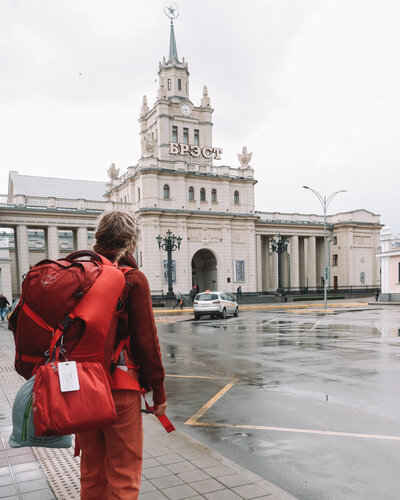
Melissa

Get the Goods
Head over to the Language & Travel Shop to check out my favorite goodies I use for learning Russian and traveling! I've compiled all my favorite products I use when #onthebloc so that you can benefit from them when you travel abroad. Help yourself prepare and support this blog at the same time :) Счастливого пути!
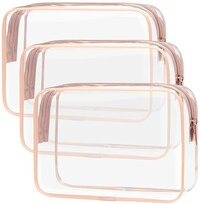

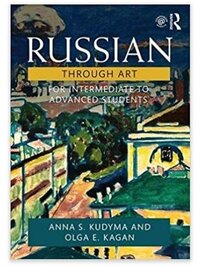

carry-on goods
gifts for travelers
photography
apparel & accessories
textbooks & readers
luggage & bags
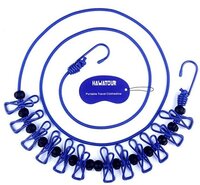
categories
#oTB essentials
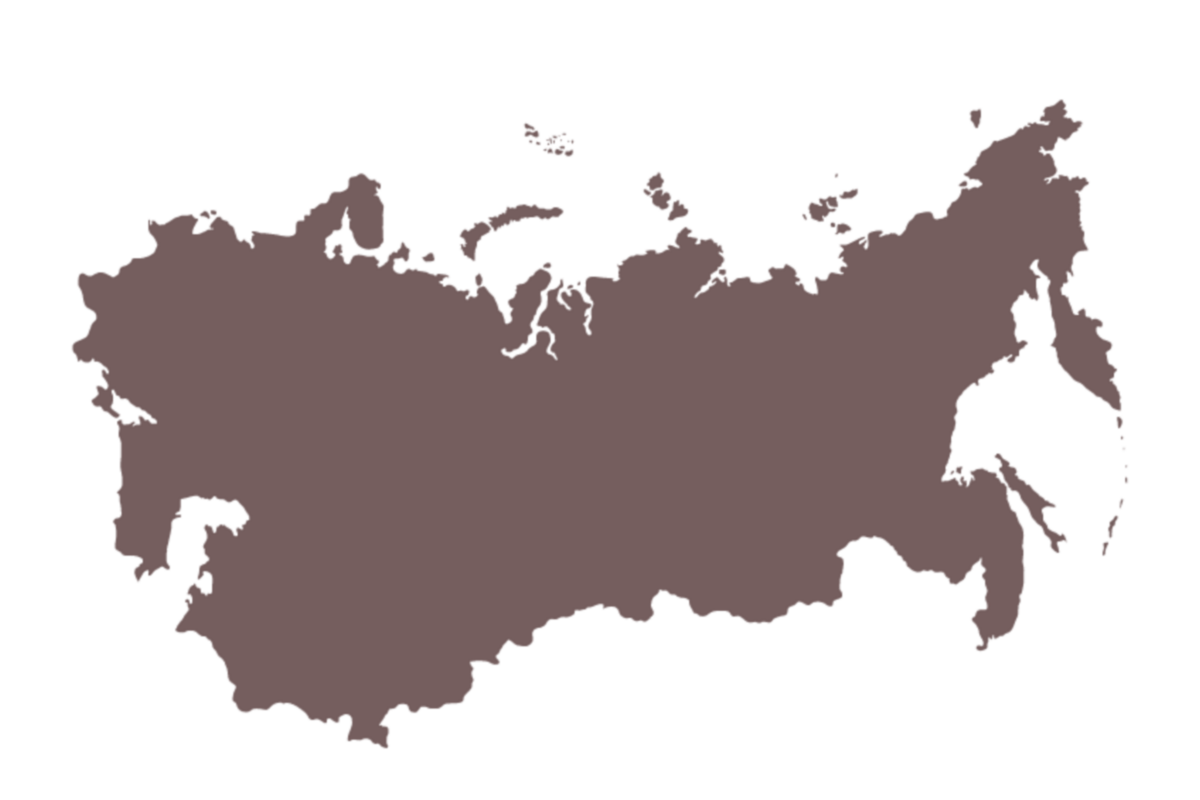
Russian-Speaking Travel Destinations
use your new russian skills in real life!
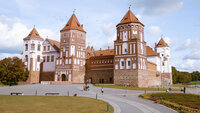
Belarus
EASTERN EUROPE
central Asia
central Asia


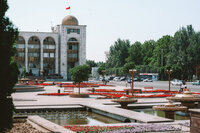
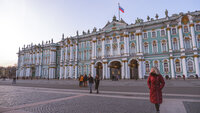
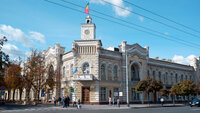
Eurasia
Russia
Kyrgyzstan
armenia
Moldova
Kazakhstan
eastern europe
read »
read »
read »
read »
read »
read »
The caucasus
travel guides
Get your FREE #OnTheBloc Starter Kit!
Sign up for the NGB Monthly Newsletter & you'll get a FREE downloadable PDF with Russian language and travel resources for your post-Soviet journey!
оставаться на связи








